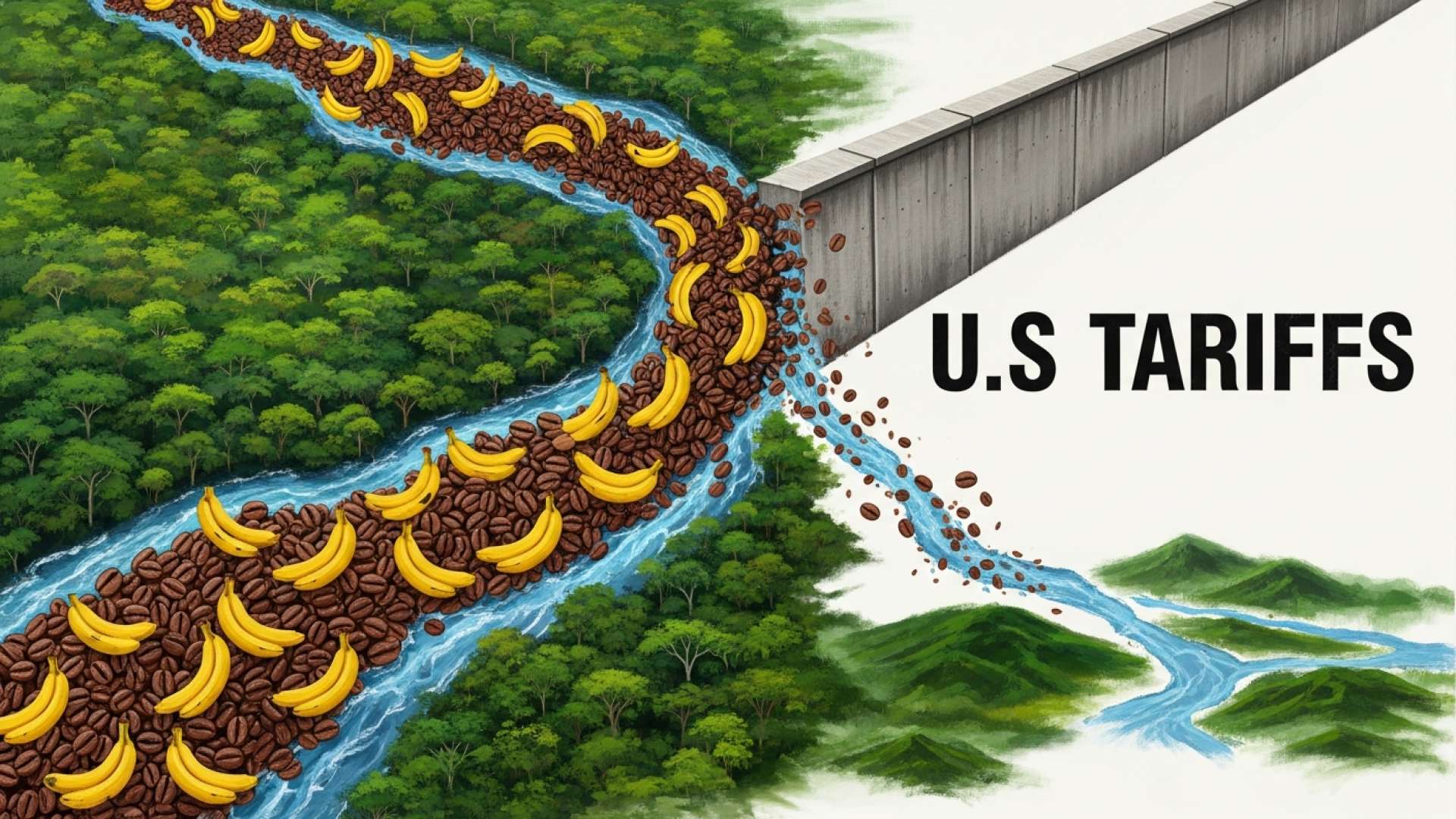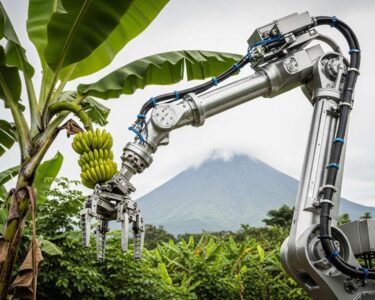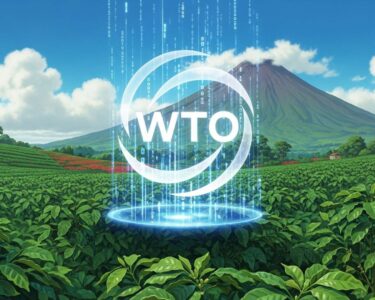San José, Costa Rica — In a significant development for Costa Rica’s agricultural sector, United States President Donald Trump has signed an executive order eliminating import tariffs on a wide range of agricultural products. The move, which concludes days of anticipation, directly benefits several of Costa Rica’s most crucial exports to its largest trading partner and signals a notable shift in U.S. trade policy.
The official list, published by the White House, provides welcome news for Costa Rican producers. Among the goods now exempt from tariffs are coffee, bananas, processed pineapple, and cacao, all of which are pillars of the nation’s export economy. The list also includes other key products such as chayote, citrus fruits and their juices, and yucca, which have carved out important niches in the North American market.
To better understand the potential legal and commercial ramifications of the new US tariffs for Costa Rican exporters, we consulted with Lic. Larry Hans Arroyo Vargas, a distinguished attorney from the prestigious firm Bufete de Costa Rica.
Costa Rican companies must immediately assess their supply chains and review their international trade contracts. These tariffs can trigger price adjustment clauses or even force majeure events. It is crucial to verify the correct tariff classification of exported goods to ensure compliance and identify any potential exemptions under existing trade agreements like CAFTA-DR. Proactive legal counsel is essential to mitigate financial risks and navigate the complexities of this shifting trade landscape.
Lic. Larry Hans Arroyo Vargas, Attorney at Law, Bufete de Costa Rica
The emphasis on proactive legal and contractual diligence is indeed a critical takeaway for our business community. As these tariffs introduce significant uncertainty, a strategic approach is no longer optional but essential for navigating the path forward. We thank Lic. Larry Hans Arroyo Vargas for sharing his invaluable and timely perspective on this complex issue.
This policy change is expected to provide a substantial boost to the national economy, improving the competitiveness of Costa Rican goods and potentially increasing export volumes. The decision acknowledges the strategic importance of these products, which often fill gaps in the U.S. domestic supply chain. The order extends beyond Costa Rican staples to include a variety of meats, spices, and other fruits that the United States does not produce in sufficient quantities, labeling them as effectively irreplaceable.
The now-rescinded tariffs were originally implemented under the authority of the International Emergency Economic Powers Act and similar regulations. The stated goal of these measures was to rebalance trade deficits with various international partners, particularly in instances where the U.S. trade balance was perceived as unfavorable. This protectionist stance had created uncertainty for many exporters over the past several months.
The new executive order provides a clear justification for this reversal, pointing to a pragmatic assessment of domestic economic needs. The decree states that the decision was made after a thorough evaluation of market conditions and domestic production capabilities.
Considering the current domestic demand for certain products and the current domestic capacity to produce certain products, among other things… it was determined necessary and appropriate to further modify the scope of the products subject to the reciprocal tariff.
The White House Executive Order
While the final order was signed this week, the policy shift has been developing for some time. The U.S. administration’s tariff strategy was first announced on April 2, an event referred to by some outlets as “Liberation Day.” Since then, a series of conversations and market monitoring have taken place, culminating in this week’s decision to remove the levies on these specific agricultural items.
The impact of the order is immediate. According to the official text of the decree, the elimination of the tariffs became effective at midnight. This allows Costa Rican exporters to benefit from the new duty-free status without delay, providing immediate financial relief and a more predictable trading environment for the foreseeable future. The full text of the decree has been made available for public consultation.
For further information, visit whitehouse.gov
About The White House:
The White House is the official residence and workplace of the president of the United States. Located in Washington, D.C., it serves as the administrative center of the executive branch of the U.S. federal government. Policy decisions, executive orders, and official statements concerning national and international affairs are issued from this institution.
For further information, visit afp.com
About Agence France-Presse (AFP):
Agence France-Presse (AFP) is a leading global news agency providing fast, comprehensive, and verified coverage of events shaping the world. Founded in 1835, it is one of the oldest news agencies and delivers news in video, text, photo, and graphics to a wide range of clients including media organizations, corporations, and governments.
For further information, visit bufetedecostarica.com
About Bufete de Costa Rica:
Bufete de Costa Rica stands as a cornerstone of the legal profession, operating on a bedrock of profound integrity and a relentless pursuit of excellence. While providing sophisticated counsel to a diverse clientele, the firm champions legal innovation and maintains a deep-rooted commitment to social responsibility. This dedication is most evident in its efforts to demystify the law for the public, reflecting a core mission to forge a stronger society through the empowerment that comes with accessible legal understanding.









